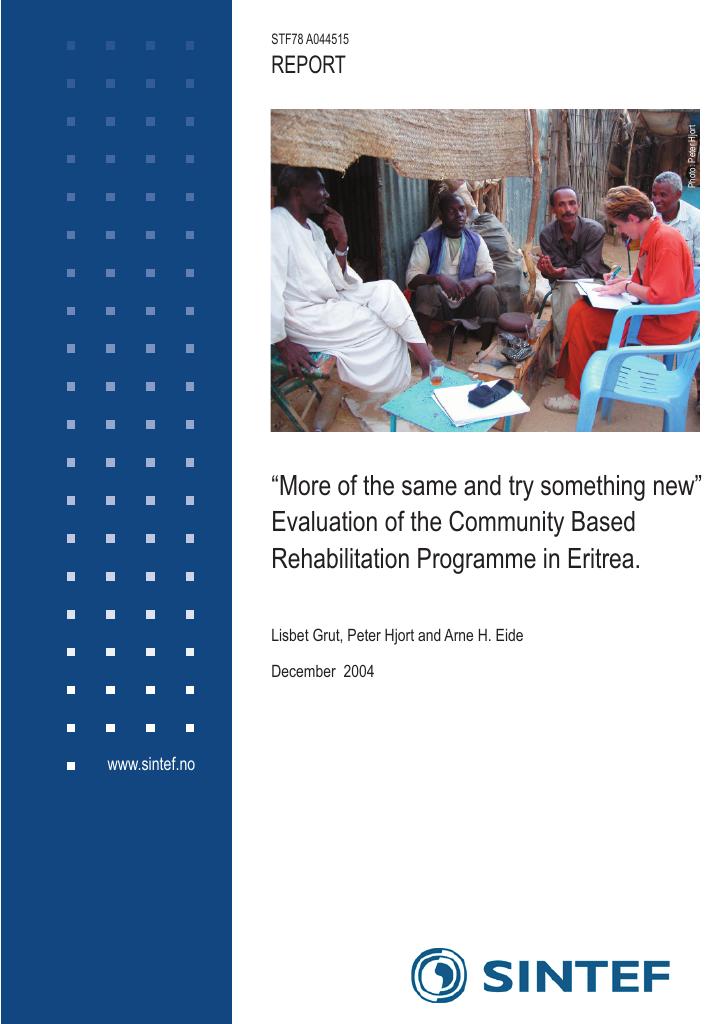Evaluering
"More of the same and try something new" - Evaluation of the Community Based Rehabilitation Programme in Eritrea
Background The Norwegian Association of Disabled (NAD) has cooperated with the Ministry of Labour and Human Welfare (MLHW) in Eritrea since 1994. Through this cooperation, NAD has provided support to the country's Community Based Rehabilitation (CBR) programme with funds from NORAD and the Atlas Alliance. NAD requested SINTEF Health Research to carry out this evaluation of the CBR programme in preparation for the renewal of its cooperation agreement with the MLHW. The study visit for the evaluation took place in August - September 2004. Purpose/objective The objectives of the evaluation were to: i) assess the effectiveness, impact and relevance of the programme, ii) examine and draw conclusions regarding theprogramme's strengths and weaknesses, and iii) to propose recommendations that could strengthen the programme. Methodology The methods applied were qualitative and included interviews, group interviews, focus group discussions and observations. Existing documentation was also utilised. Key findings The evaluation has shown that the program is highly relevant, that it has beeneffective in achieving its goals to a certain extent, and that impact is demonstrated in certain areas. In particular, the programme has been effective in raising awareness and advocating for the rights of the disabled, and has thereby contributed to the integration of disabled people. Equal access and opportunities for disabled people have been achieved by the CBR program in a number of ways. This has, in large part, been due to effective mobilisation of community resources. The strength of the program is its relevance for the country and for the population and its integration in local communities. Sustainability of the programme is strengthened because it has a well established framework, is an integral part of the local political structure, and is based on community resources and service delivery. The main challenges to the CBR programme are largely linked to lack of resources and competence. Recommendations Recommendations of the study included:- improvement of the reporting system- better utilisation of experiences within the CBR programme, including peer counselling to utilise/share the experiences of disabled people themselves- continued, increased and differentiated training of local supervisors- changes in the working conditions for the local supervisors (i.e. volunteer community workers)- continued collaboration with NAD and other external partners- applying self-organisation of the disabled as a new strategy- better utilisation of existing data and new data collections within selected areas- consider accelerating expansion of the CBR programme to new sub-regions
